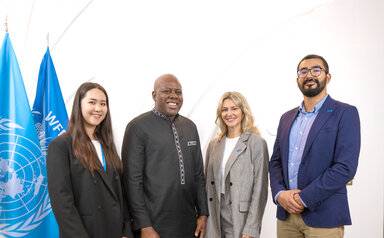
Contract types
Young Talent Programmes
Junior Professional Officer (JPO)

The Junior Professional Officer Programme, funded by donor governments, offers an exceptional opportunity for young professionals to gain hands-on experience in the world of international development and humanitarian aid. This programme is designed to provide emerging talent, primarily from donor countries and occasionally from developing nations, with skills and knowledge to support WFP’s mission of ending hunger and its commitment to the 2030 Agenda for Sustainable Development.
The primary aim of the JPO Programme is to support the development and capacity-building initiatives of WFP, fostering the next generation of leaders in the field of international cooperation.
WHO ARE JPOS?
JPOs are highly skilled and motivated international professionals selected through bilateral agreements between WFP and donor countries. To join the programme, candidates are required to hold an advanced university degree and to have at least two years of relevant professional experience.
WHAT DO JPOS DO AT WFP?
JPOs are placed in WFP’s country offices, regional bureaux or headquarters, where they engage in a variety of impactful roles across functional areas. They contribute to project management, programme implementation, research, monitoring and evaluation, data analysis, and policy development. Working alongside local communities, governments and international partners, JPOs help shape strategies to combat hunger and malnutrition worldwide.
In times of crisis, such as disasters or conflicts, JPOs play a vital role in WFP's emergency response, ensuring the efficient delivery of life-saving food assistance and coordinating relief operations to assist those in need.
WHAT ARE THE BENEFITS OF BEING A JPO?
The JPO Programme offers a competitive and dynamic environment that promotes diversity and inclusion. Participants are provided with invaluable on-the-job learning experiences, supported by expert mentoring and guidance. By working on real-world projects, JPOs contribute directly to WFP’s mission, especially the pursuit of the 2030 Agenda for Sustainable Development.
JPOs are offered the opportunity to enhance their skills through training, gain exposure to multilateral international cooperation, and maximise their potential in a world-class, global organisation dedicated to ending hunger.
AM I ELIGIBLE?
To apply to JPO roles, you must meet the following criteria:
- hold an advanced university degree; or first level university degree with additional relevant work experience;
- have a minimum of two years of relevant professional work experience;
- be fluent in English; and
- be proficient in Windows MS Office.
Having an intermediate level of one or more of the following official languages is highly desirable: French, Spanish, Arabic, Chinese, Russian and Portuguese.
You should also demonstrate the following behavioural competencies:
- Leads by example with integrity,
- Drives results and delivers on commitments,
- Fosters inclusive and collaborative teamwork,
- Applies strategic thinking,
- Builds and maintains sustainable partnerships.
Internship
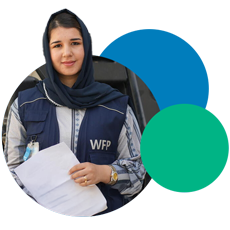
The WFP Internship Programme offers a dynamic, professional learning experience for young talents eager to gain hands-on exposure in the humanitarian sector. Designed to complement academic studies and career goals, the programme provides an opportunity to contribute fresh perspectives and technical expertise through practical assignments, directly supporting WFP’s mission of ending hunger and its commitment to the 2030 Agenda for Sustainable Development.
WHO ARE INTERNS?
WFP interns are motivated students or recent graduates who are passionate about making a difference and keen to explore the humanitarian sector. This enriching experience allows them to apply their academic knowledge in real-world settings, gain valuable skills and transition smoothly into their professional careers.
WHAT DO INTERNS DO AT WFP?
Interns play a vital role in supporting WFP’s mission, by assisting with a range of professional tasks. These may include:
- conducting research and data analysis to inform key decisions;
- drafting documents and presentations that contribute to ongoing projects;
- sharing fresh ideas and technical knowledge during brainstorming sessions; and
- collaborating with teams to support day-to-day operations.
In every task, interns are encouraged to bring their unique perspectives and contribute to impactful initiatives that help address global hunger and malnutrition.
WHAT ARE INTERNS' BENEFITS?
WFP offers internships at country offices, regional bureaux and headquarters, with durations ranging from two to eight months. Interns receive valuable benefits designed to support their professional growth:
- a stipend as a contribution towards basic subsistence costs and connected to the city and country of assignment, not exceeding US$1,000/month;
- medical and accident insurance coverage during the duration of the internship;
- roundtrip appointment and repatriation trip for nationals of developing economies studying in their home country;
- official holidays according to the location of the assignment;
- certified sick leaves;
- support with VISA applications, if applicable; and
- a wide range of training and e-learning resources for interns' professional growth.
AM I ELIGIBLE?
To apply for an internship, you must:
- be currently enrolled in an undergraduate or graduate programme from a recognised university and have attended classes in the past 12 months; or
- be recent graduate (maximum six months) from a recognised university and have attended classes in the past 12 months; and
- have completed at least two years of undergraduate studies;
- be fluent in English. Working knowledge of one or more of the following official languages is an asset: French, Spanish, Arabic, Chinese, Russian and Portuguese;
- be proficient in Windows MS Office;
- adhere to WFP’s Leadership Framework on Common Standards of Behaviour competencies;
- demonstrate collaborative interpersonal skills to work across a variety of cultures; and
- have no immediate relatives (sister, brother, mother, father) working for WFP.
Fellowship

The WFP Fellowship Programme offers qualified and highly motivated young talents the chance to deepen their expertise and understanding of humanitarian assistance. Fellows are immersed in both operational and support functions, supporting WFP’s mission of ending hunger and its commitment to the 2030 Agenda for Sustainable Development.
WHO ARE FELLOWS?
Fellows are talented Master’s and PhD students, graduates, researchers and professors who bring a strong foundation of technical and professional skills essential for pursuing a career in the humanitarian sector. They support WFP’s daily operations, helping to drive progress toward our global goals.
WHAT DO FELLOWS DO AT WFP?
Fellows gain invaluable hands-on experience by supporting and contributing to a wide range of functions related to humanitarian assistance, including donor relations, policy development, humanitarian finance, programme design, proposal development, and research and analysis. Through these tasks, fellows directly contribute to the success of WFP’s mission, collaborating with teams and enhancing their skills in a real-world, fast-paced environment.
WHAT ARE FELLOWS' BENEFITS?
Fellowship opportunities are offered throughout the year in country offices, regional bureaux and headquarters, with fellowships lasting between 3 and 12 months. Fellows are fully sponsored by organizations, which can include academic institutions, research bodies or governmental agencies. These entities provide resources and support during the fellowship period, covering costs such as stipend, roundtrip appointment and repatriation travel,accommodation, visa fee, medical insurance and other costs related to assignment. Note that WFP does not provide direct financial support to fellows.
AM I ELIGIBLE?
To apply for a fellowship, you must:
- be a Master’s or PhD student or graduate, researcher or professor, with an advanced level of technical knowledge in any of WFP’s fields of work, and typically have completed at least an undergraduate programme;
- be financially sponsored by academic institutions, research organizations or governmental bodies that have a valid Fellowship Partnership Agreement in place with WFP;
- be fluent in English. Fluency in other WFP official and working languages is always an asset and may be an additional requirement at some duty stations;
- be proficient in Windows MS Office;
- adhere to WFP’s Leadership Framework on Common Standards of Behaviour competencies;
- demonstrate collaborative interpersonal skills to work across a variety of cultures; and
- have no immediate relatives (sister, brother, mother, father) working for WFP. Additional basic eligibility requirements might be established by the sponsoring entity.
WFP Volunteer
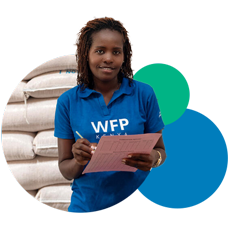
The WFP Volunteer Programme provides a unique opportunity for individuals to contribute their skills and gain valuable experience while supporting WFP’s mission of ending hunger and its commitment to the 2030 Agenda for Sustainable Development. Volunteers play an essential role in advancing WFP’s work, helping us respond to global challenges and build a better future for those in need.
WHO ARE WFP VOLUNTEERS?
Volunteers are passionate individuals, aged 18 and over, who are committed to WFP’s goals and mission. Volunteers bring their diverse skills, energy and enthusiasm to help us tackle hunger and malnutrition worldwide.
WHAT DO VOLUNTEERS DO AT WFP?
Volunteers engage in a wide variety of responsibilities across different areas. Depending on the assignment, volunteers might support WFP operations in research and data analysis, programme implementation, supply chain and administrative support.
Whatever the role, WFP volunteers contribute to key projects, providing valuable assistance to enhance our operational capacity and helping to drive forward our mission.
WHAT ARE VOLUNTEERS' BENEFITS?
WFP offers volunteer assignments at headquarters, regional bureaux and country offices around the world, with opportunities lasting up to 12 months. While volunteer roles are unpaid, there are several key benefits:
- medical insurance coverage for the duration of the assignment;
- travel expenses covered, if travel is required as part of the volunteer role; and
- access to a variety of training programmes and e-learning resources to support personal and professional development.
Volunteers gain hands-on experience in a dynamic and collaborative environment, enhancing their skills while having a meaningful impact on global food security.
AM I ELIGIBLE?
To apply for a volunteer assignment with WFP, you must meet the following requirements:
- be over 18 years of age;
- be fluent in English. Additional proficiency in one or more of the following UN official languages (French, Spanish, Arabic, Chinese, Russian and Portuguese) is an asset;
- have legal residency or immigration status in the country of assignment;
- adhere to WFP’s Leadership Framework and Common Standards of Behaviour; and
-
demonstrate collaborative interpersonal skills to work effectively across diverse cultures and teams.
United Nations Volunteer (UNV)
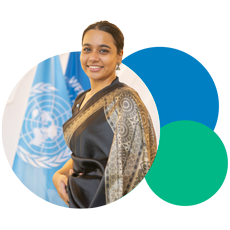
The United Nations Volunteers programme promotes volunteerism to support peace and development worldwide, partnering with organizations across and beyond the UN system including the World Food Programme.
UNV contracts at WFP offer individuals the chance to make a meaningful impact on global humanitarian efforts through short to medium-term assignments, typically lasting from 3 to 48 months. UN Volunteers may be recruited nationally or internationally. Allowances and benefits adhere to United Nations standards and are reflective of the local context.
Visit the UNV website to find more information about the programme and to apply to open positions.
Fixed-term contracts
International Professional (IP)

An International Professional at WFP and other United Nations agencies refers to a staff category comprising individuals recruited internationally to bring specialised expertise to their roles. These positions are open to candidates of all nationalities, reflecting the global and inclusive nature of our work.
IP grades range from P1 to D2: in the United Nations system, the “P” stands for Professional and the “D” stands for Director, with the numbers following indicating varying grades that reflect increasing levels of seniority, responsibility and professional requirements across the roles.
D2 and D1s generally serve as senior leaders, such as country directors or directors, overseeing major programmes, setting strategic direction, and managing substantial teams and resources in our headquarters or at the country or regional level; P4 and P5s typically engage in managing complex projects or programmes, providing strategic guidance and leadership, and influencing policy development within their areas of expertise. P3, P2 and P1s typically perform specialized and analytical tasks, with responsibilities escalating from entry-level duties at P1 to more complex project management and technical roles at P3.
Contracts for these roles are typically fixed term, allowing for medium- to long-term commitments, with the possibility of renewal for one or two years based on organizational needs, funding availability and satisfactory performance. Compensation, including salary scales and allowances, is determined by the International Civil Service Commission and ratified by the United Nations General Assembly (see UN Salary Scales).
Most International Professional roles at WFP are rotational, requiring geographical mobility every two to four years in accordance with our Reassignment policies (see below).
We encourage individuals from all nationalities and backgrounds to apply for our international positions, as we believe that diverse perspectives enrich our organization and contribute to our success. It is however not possible to apply for International Professional positions in your home country, except for positions in headquarters and regional offices.
What is Reassignment?
Reassignment at WFP is a strategic process that fosters both career development and organizational effectiveness. For staff, reassignment offers a unique and exciting opportunity to continuously expand their knowledge and expertise by working in diverse contexts across various locations, including country offices, regional bureaux and headquarters. This exposure to different professional environments and challenges enhances employees’ adaptability, broadens their skill sets and often allows them to take on higher-level responsibilities, accelerating career progression. Moreover, reassignment enables employees to collaborate with colleagues from different cultural and professional backgrounds, creating a dynamic and enriching work environment. This interaction fosters strong, lasting connections among staff and cultivates a shared sense of purpose, reinforcing the esprit de corps that defines the WFP family. Through this process, staff not only grow individually but also contribute meaningfully to WFP’s mission, bringing fresh perspectives and renewed energy to our work in tackling global hunger.
Limited Fixed Term (LFT) International Professionals

This is a new type of staff appointment in the International Professional category, to cover functions on a medium-term basis of between one to four years. It may be used for time-bound projects or activities, or to cover unique positions required for a limited time that demand skills, qualities and competencies not readily available through WFP’s internal rotational workforce.
We encourage individuals from all nationalities and backgrounds to apply for our international positions, as we believe that diverse perspectives enrich our organization and contribute to our success. It is however not possible to apply for International Professional positions in your home country, except for positions in headquarters and regional offices.
National Professional Officer (NO)
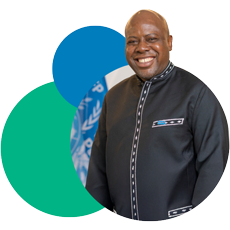
National Professional Officer staff at WFP are nationals of the country where they serve. They perform technical and professional functions Their roles demand a deep understanding of the national context, including local institutions, systems and cultural nuances, which is critical for effective programme delivery. The qualifications for National Professional Officer positions, which align with those required for International Professional staff (a minimum of a first-level university degree), are uniquely designed to capitalize on their specialized national knowledge and experience. NO contracts are classified into various levels, from NO-A to NO-D, reflecting the range of professional responsibilities. Salary scales and related allowances are established by the United Nations for each country, and NO staff are not eligible for relocation benefits.
General service

General Service staff are recruited to a duty station in regional bureaux, country offices, headquarters and at WFP global offices, to fulfil a range of support functions at various levels (G1 to G7) vital to the operational efficiency of the organization. This includes administrative, secretarial, clerical support, specialized and/or technical support roles. As job levels progress, functions become increasingly complex, accompanied by heightened levels of responsibility. General Service contracts are fixed term, allowing for medium- to long-term commitments, for one year or more. They may be renewed successively, subject to organizational needs, available funding and satisfactory performance. If you do not hold the nationality of the country where the position is located, you need to possess a valid residence and work permit, and reside within commuting distance from the duty station. General Service positions are not subject to mobility, hence no relocation benefits are provided by the organisation.
Short-term contracts
International Consultant (CST)
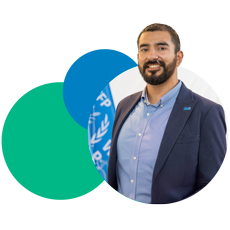
International Consultants are recognized specialists or authorities in specific fields, focused on achieving specific results. Consultant contracts offer a dynamic opportunity for professionals to provide expert advice in specialized fields or temporarily step into international positions on a short-term basis. The maximum duration for these contracts is 11 months, after which a one-month break-in-service is required for re-employment. Additionally, a three-month break-in-service applies after reaching the maximum employment period of 44 cumulative months. The remuneration fee can be set daily, monthly, or based on deliverables agreed upon before signing the contract with WFP.
Service Contract (SC)

Service Contracts cater to functions required for specific periods, often ranging from one to four years, tailored for addressing emergencies, special operations and time-limited programme activities. Exclusive to country offices and regional bureaux, Service Contracts adhere to the terms outlined in the contract. Salary scales are locally set, ensuring fairness and consistency. With a minimum duration of 6 months and a maximum of 12 months, these contracts offer flexibility while meeting WFP’s operational needs. They may be renewed without a break-in-service period, to ensure continuity in critical roles; however, the maximum period of employment under the same function/post is capped at four years, promoting opportunities for growth and diversity of experience within the organisation.
Special Service Agreement (SSA)

Special Service Agreements are used in the field to engage employees for temporary functions at the General Service or Professional level, for durations of less than 11 months. Exclusively available to country offices and regional bureaux, SSAs operate under local salary rates. The maximum duration for these agreements is 11 months. Upon completion, a one-month break-in-service is required for re-employment with this contract type, and a three-month break-in-service applies after reaching the maximum employment period of 22 cumulative months. Moreover, the maximum period of employment under the same function/post is capped at 22 cumulative months, allowing for opportunities for varied experiences and career growth within the organisation.
Casual Labour
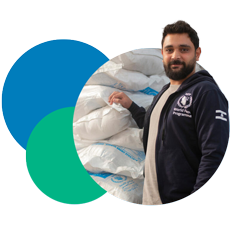
Casual Labour contracts serve to engage personnel for short periods, typically for temporary, intermittent and seasonal duties, and often of a manual nature. These contracts are exclusively available to country offices and regional bureaux, and are governed by the terms outlined in the contract and provisions of WFP’s Human Resources Manual. Salaries are paid at a daily rate or based on piecework, with rates set locally. The maximum duration for these contracts is three consecutive months. Upon completion, a one-month break-in-service is required for re-employment under this contract type. Additionally, the maximum period of employment should not exceed 9 months in any 12-month period, ensuring flexibility and adherence to organisational guidelines.
General Service Short-Term Appointment (TAU)
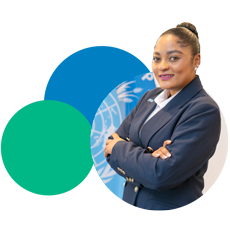
These positions are intended to provide temporary assistance for the performance of General Service staff functions, for periods of less than one year. The TAU roles are the entry step to WFP headquarters, opening opportunities to apply for other long-term positions. TAUs can be considered for reappointment after the break-in-service, to continue providing support services. These appointments are exclusively available to headquarters and WFP global offices, and are governed by the terms outlined in the contract. Salary scales and allowances are established by the United Nations for each country, ensuring consistency and fairness. Like other General Service positions, eligibility for a TAU GS position requires residency and a work permit in the country of the duty station, if the applicant is not a national.
The maximum duration for these appointments is 11 months. Upon completion, a one-month break-in-service is required for re-employment under this contract type. Additionally, a three-month break-in-service applies after reaching the maximum employment period of 44 cumulative months. Moreover, the maximum period of employment under the same function/post is capped at 44 cumulative months, facilitating opportunities for career progression and diversity of experience within the organisation.
